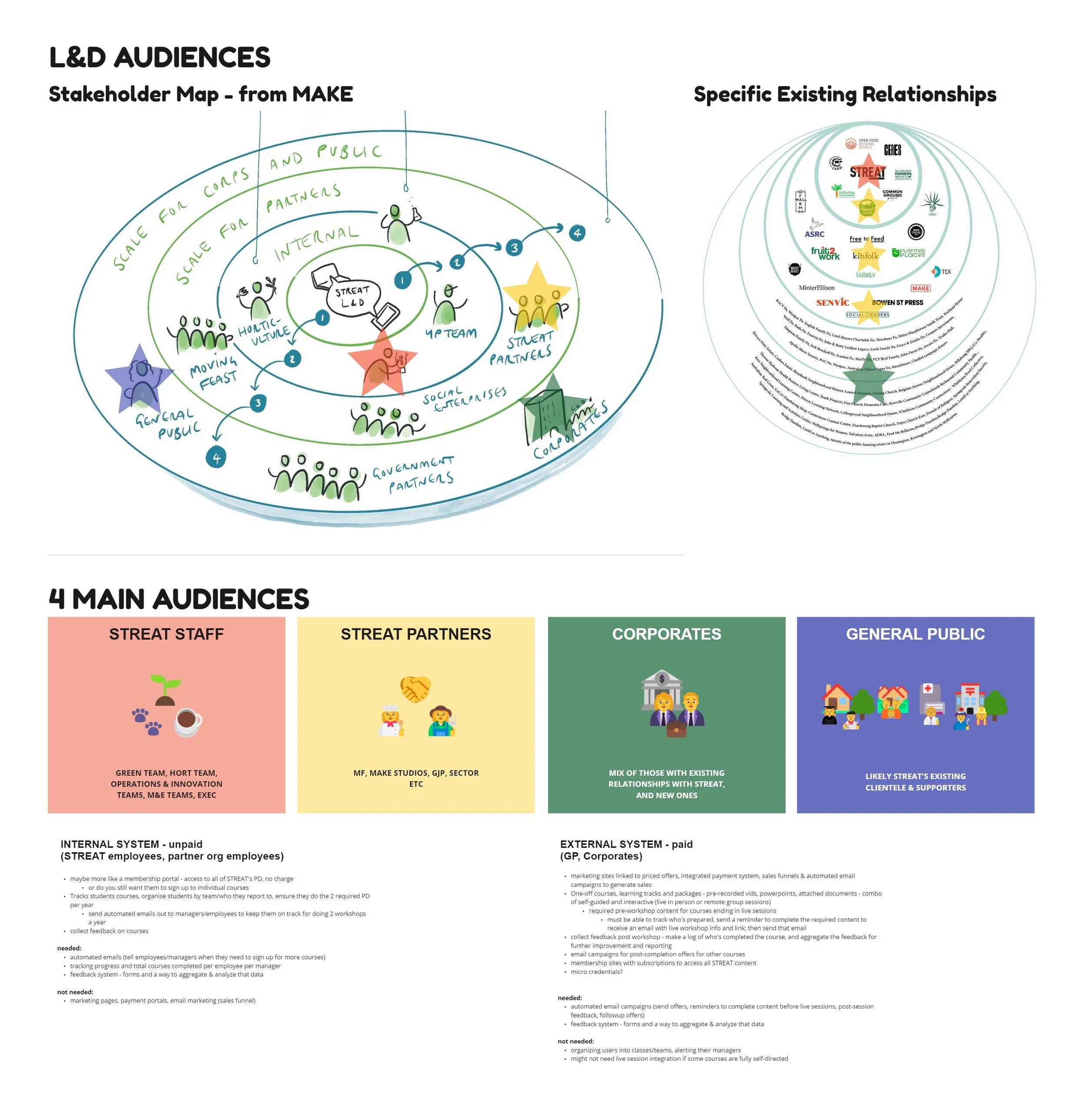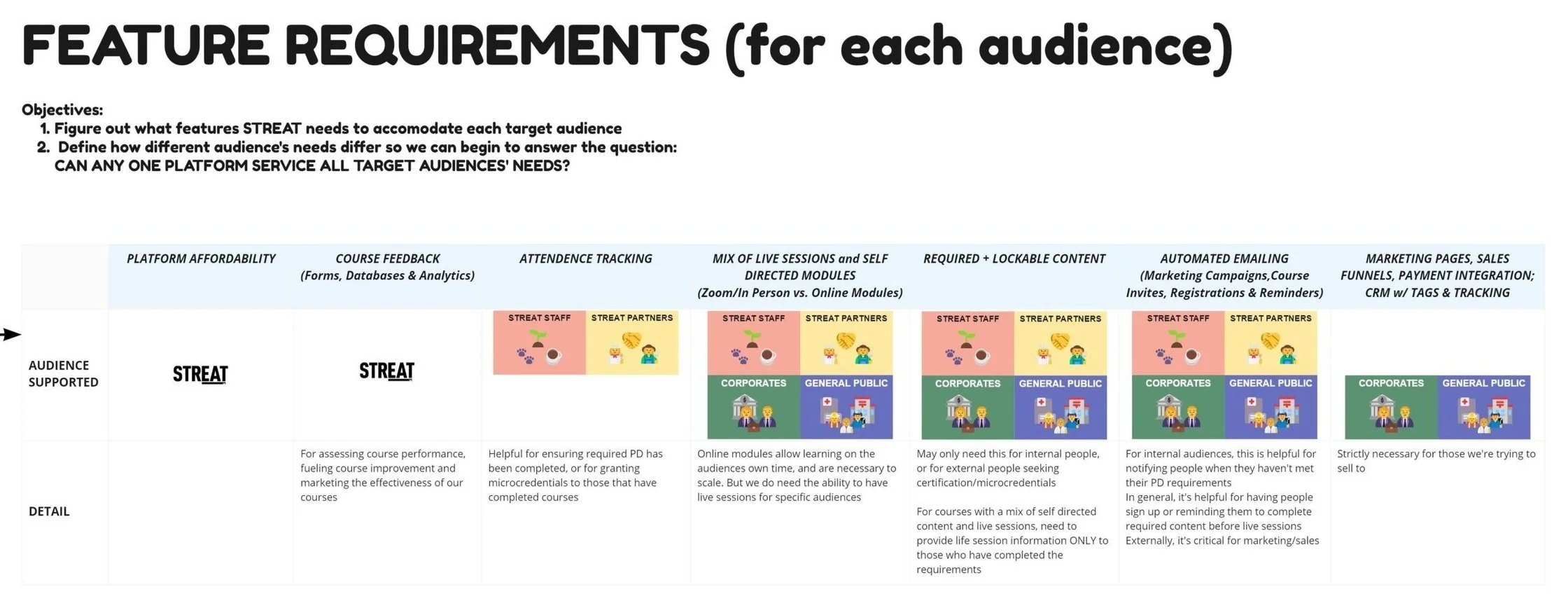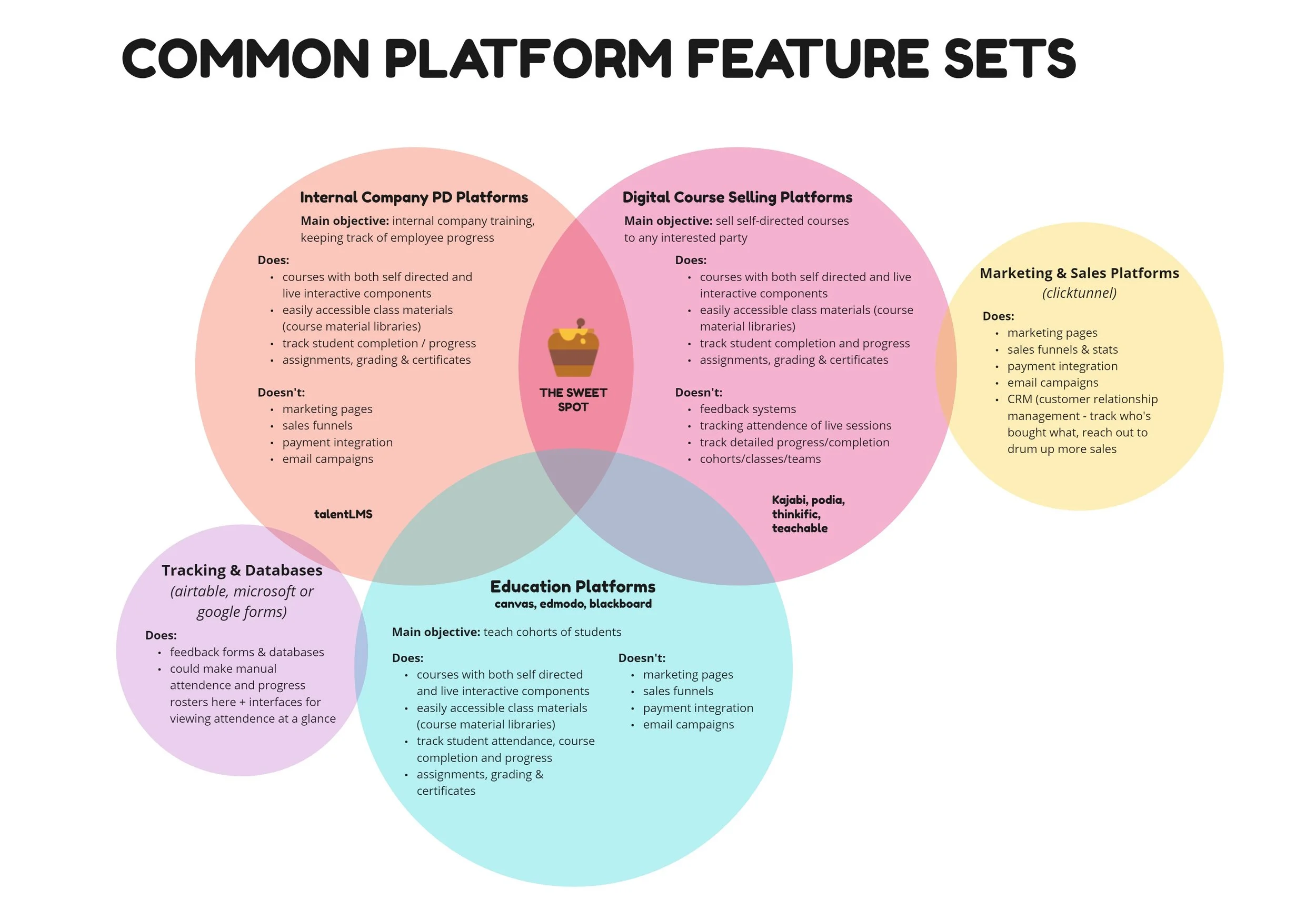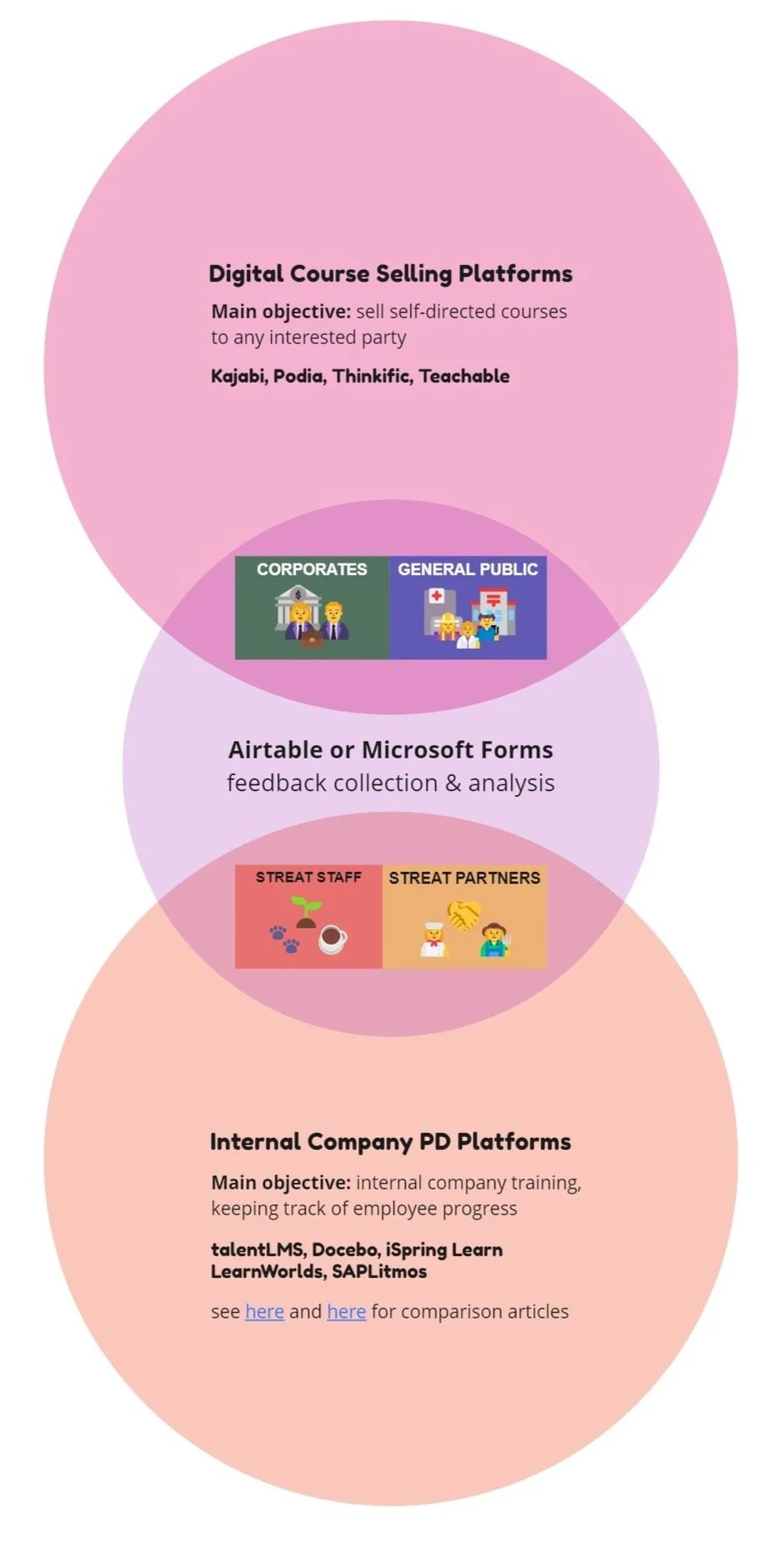COPYWRITING, ILLUSTRATION & WEB DESIGN
Publicising Monash’s Autism@Work Project Findings
SUMMARY
Researching and recommending platforms to service STREAT’s expansion into the workplace training market to empower other businesses and build a new revenue stream.
KEY SKILLS
Qualitative Research
MY ROLE
UX Researcher
CLIENT
STREAT, a work-readiness social enterprise in Victoria
THE TEAM
L&D Team
Chief Impact Officer
THE BACKSTORY
Each year, STREAT holds a host of internal trainings to keep staff up to date on inclusive practices and working with young, vulnerable people. The company has identified an opportunity to offer these classes to other organisations.
The challenge is to identify a platform that can distribute and monetize the online portion of these trainings, allow live workshops, and still support the internal training program.
THE BUSINESS CHALLENGE
How might we deliver STREAT’s training programs to external audiences in a scalable way in order to educate more workers in the sector and increase revenue?
The project has a few notable constraints: the platform must include online marketing, bundling, and payment options, allow both independent and guided learning, and support ongoing internal training.
CRITICAL DECISIONS - TARGET AUDIENCE
Each year, STREAT holds a host of internal trainings to keep staff up to date on inclusive practices and working with young, vulnerable people. The company has identified an opportunity to offer these classes to other organisations.
The challenge is to identify a platform that can distribute and monetize the online portion of these trainings, allow live workshops, and still support the internal training program.
Each year, STREAT holds a host of internal trainings to keep staff up to date on inclusive practices and working with young, vulnerable people.
The challenge is to identify a platform that can distribute and monetize the online portion of these trainings, allow live workshops, and still support the internal training program.
Each year, STREAT holds a host of internal trainings to keep staff up to date on inclusive practices and working with young, vulnerable people.
The challenge is to identify a platform that can distribute and monetize the online portion of these trainings, allow live workshops, and still support the internal training program.
TAKEAWAYS
Most LMS’s feature sets support either internal training OR external audiences, NOT BOTH -
education and professional development platforms often offer progress tracking, assignments, and grading
course selling platforms typically support self-directed classes (no live sessions), sales funnels, marketing sites, and email marketing campaigns
Two options best serve STREAT’s needs:
2 separate platforms for internal and external training
integrating multiple services to create the ideal feature set, rather than continuing to search for that in an existing LMS
After further analysing these challenges, we generated 3 concepts for turning them into business opportunities:
-

Compost Upcycler
Take a low-effort, narrow-scope approach to upcycling by monitoring, sorting, and storing usable organic resources to revamp as high-value retail products
-

Resource Exchange
Create a platform to help Moving Feast overcome decentralisation - share resources, equipment, and expertise so that wasted materials can be upcycled by the best-suited partner
-

Product Incubator
Formalise and open-source the product development process - build a platform to communally collect, develop, and test upcycling ideas for Moving Feast’s wasted resources

We chose to explore the product incubator based on its scalability and low logistical requirements
Unlike the resource exchange, which involves the costs and logistical challenges of moving resources and equipment from place to place, the product incubator works with ideas and procedures, which are infinitely reproducible and easily shared.
The incubator also maximises the likelihood of developing winning products by sourcing and sharing ideas all across Moving Feast, unlike individual compost reviews, which keep innovations siloed within each business.
CONCLUSION
WHAT HAS THE PROJECT ACCOMPLISHED SO FAR?
We have already logged several tons of wasted materials in the system, and amassed over 100 product ideas to make use of that specific waste, some of which are now progressing to prototyping and market testing.
Through the creation and sharing of this tool, we have established Moving Feast as an important player in the circular design movement and opened up new relationships with major circular organisations, who will likely act as future collaborators.
WHERE DOES THAT LEAVE US?
Despite lacking the budget to hire developers and launch the tool, our refined designs put us in a strong position to court further funding for the tool. In the meantime, the Airtable prototype will support further product idea collection, which can later be uploaded to the custom tool.
WHAT’S NEXT?
In future iterations of the project, I would:
pursue further funding to develop and validate the web-based tool
build out the performance-tracking element of the tool to create a feedback loop that improves the viability and desirability framework over time
measure success by
the number of waste-based products that make it to market and produce a regular profit across various Moving Feast businesses
the % reduction in tonnes of waste and carbon emissions produced by Moving Feast each quarter





